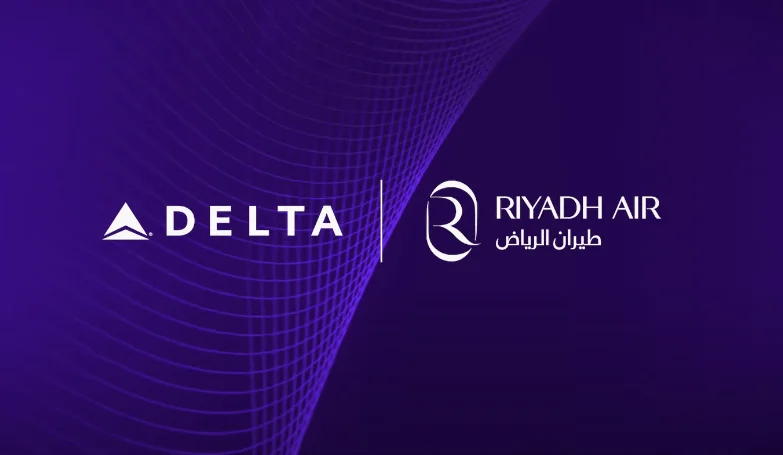Real-Time BNB Signal Analytics
Real-Time BNB Signal Analytics
So, Delta's Flying to Riyadh. Let's Talk About the Real Reason Why.
Let's get one thing straight. When a legacy airline like Delta suddenly announces a 7,283-mile flight to a place it has historically ignored, it's not because their executives had a sudden, overwhelming desire for "cultural exchange." Give me a break.
I can just picture the press conference. The sterile room, the faint hum of the air conditioning, the perfectly pressed suits. Delta CEO Ed Bastian steps up to the podium, adjusts his tie, and delivers a line so polished it could blind you: this new Atlanta-to-Riyadh route "marks a key step in Delta’s global growth" and connects customers to a "dynamic, fast-growing region."
It’s a beautiful piece of corporate poetry. It’s also a complete load of crap.
What he really means, what the teleprompter conveniently leaves out, is that Saudi Arabia is throwing an obscene amount of money at any airline willing to point its planes toward Riyadh. This isn't about growth. This is about a subsidy. It’s a sponsored flight, and Delta is just the influencer getting paid to post about it. The whole situation is perfectly summed up by the headline Delta Plans Atlanta To Riyadh Flights, Chasing Saudi Arabia Subsidies. They're not building a bridge between cultures; they're cashing a check.
And honestly, can you blame them? The whole airline industry feels like a race to the bottom, so when someone shows up with a blank check and asks you to fly to their capital, you say yes. But why do we, the public, have to sit here and swallow the fairy tale about "strengthening global connectivity"?
Every time one of these announcements drops, the PR machine goes into overdrive. You get the canned quotes, the mutual back-patting, the talk of grand visions. Saudi Arabia's Minister of Tourism, Ahmed Al-Khateeb, chimed in, saying the flights "mark a significant milestone" and will "open doors for tourism."
Open doors for tourism? Offcourse. But whose doors, and paid for by whom?

This entire venture is less of a strategic masterstroke and more of a paid placement. Think of it like a desperate YouTuber who suddenly starts raving about a terrible mobile game. They'll talk about the "incredible graphics" and "addictive gameplay," but we all know the real reason is the fat sponsorship deal that just hit their bank account. Delta is that YouTuber. Riyadh is that mobile game. The A350 is just the camera they're using to film the ad.
This isn't an organic expansion driven by market demand. No, this is a calculated transaction. It's a direct consequence of Saudi Arabia's push to become a global hub, propped up by its new, state-funded airline, Riyadh Air. They need international partners to look legitimate, and they have the cash to make it happen. So, who do they call? The airline that’s been noticeably absent from the cool kids' table in the Middle East.
What I want to know is, how big was the check? Was it a one-time payment, or is this an ongoing stipend? And what are the strings attached? These are the questions that don't get asked in the glossy press releases, but they're the only ones that actually matter.
For years, Delta has been on the outside looking in when it comes to the Middle East. United has its cozy partnership with Emirates. American Airlines has its hooks in Etihad and Qatar Airways. Those are the established, powerful players that dominate the region. Delta had... well, not much.
So this move isn't just about taking the money. It's a move born from a position of weakness. This is a bad idea. No, 'bad' doesn't cover it—this is a five-alarm dumpster fire of strategic desperation. They couldn't beat 'em, and they couldn't join 'em, so they decided to partner with the brand-new, government-backed startup that’s trying to buy its way into the market.
It’s a classic business school scenario. When you can't innovate or out-compete, you find a benefactor. By cozying up to Riyadh Air, Delta gets a foothold and a paycheck, all in one go. But it feels so hollow. It’s an admission that their own strategy for the region failed, or never really existed in the first place. They’re basically admitting they can't compete on their own merits, so they'll just take the cash and hope nobody notices...
And what happens in five or ten years when Riyadh Air is fully established and doesn't need Delta as a training partner anymore? What happens if the Saudi government decides the subsidies are no longer worth it? Delta will be left with a 7,283-mile route to a market it never genuinely cultivated, with no competitive advantage other than a memory of a government handout. Its a strategy with the shelf life of a carton of milk.
Then again, maybe I'm the crazy one here. Maybe this is just how the world works now. Forget building a sustainable business based on genuine customer demand. Just find a government with deep pockets and a big ego, and you're set.
At the end of the day, this whole thing just leaves a bad taste in my mouth. It's the perfect encapsulation of modern corporate thinking: transactional, opportunistic, and utterly devoid of any real soul or long-term vision. Delta's old slogan was "Keep Climbing." This feels more like "Keep Cashing Checks." It's a predictable, boring, and cynical move from a company that wants us to believe it's in the business of connecting people, when it's really just in the business of business. And that, I guess, is the most honest thing about it.